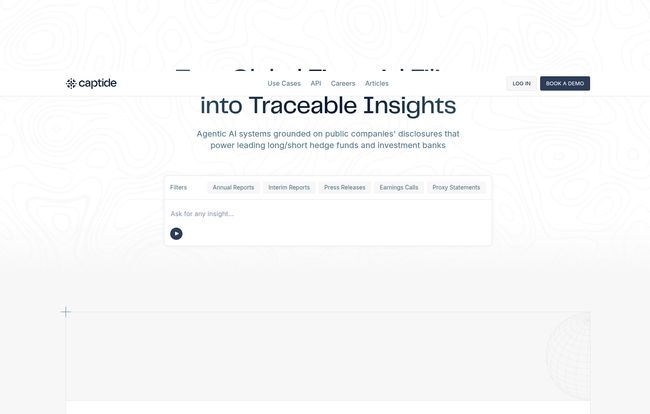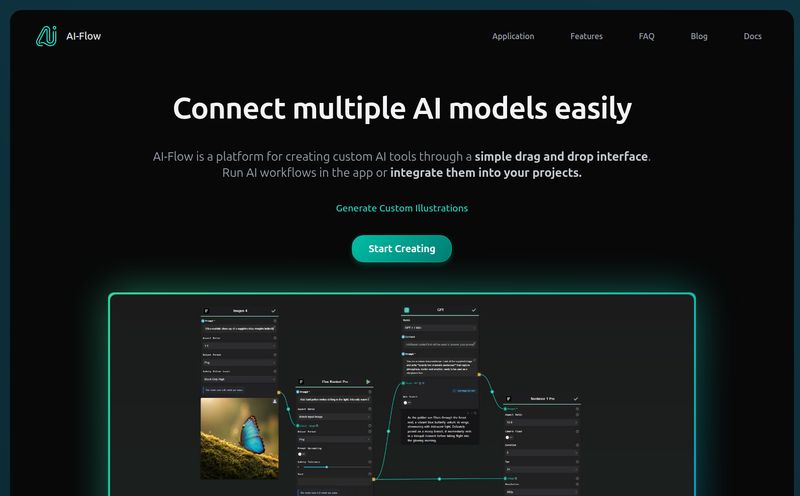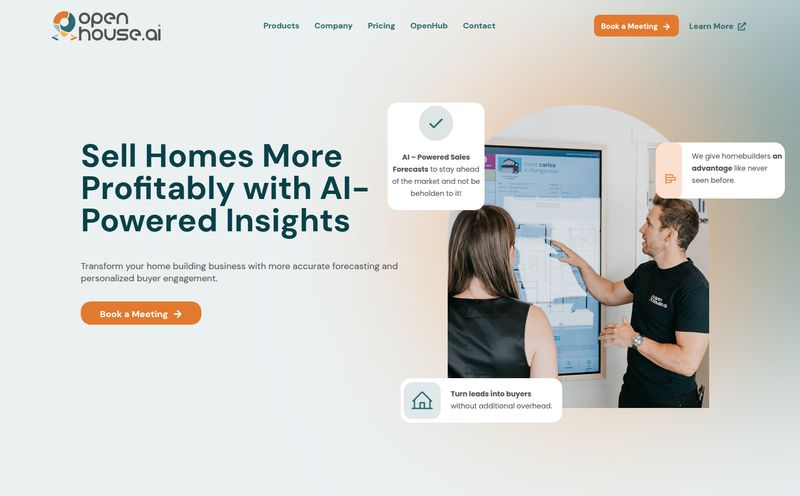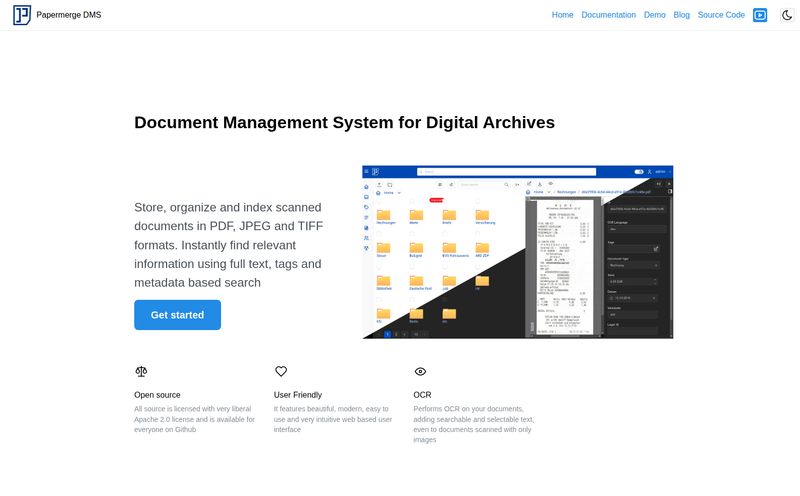If you're an equity analyst, a good portion of your life is spent doing something incredibly valuable but also mind-numbingly tedious: wrestling with data. You’re digging through endless SEC filings, transcribing earnings calls in your head, and trying to force-fit unstructured data into your beautifully structured Excel models. It’s the necessary grunt work before you can get to the actual work—the analysis, the insights, the brilliant calls that define your career.
I’ve been there. I still have nightmares about manually pulling segment data for a dozen companies for a comp table. The ctrl+c, ctrl+v, reformat cycle… it's a soul-crushing part of the job we just sort of… accept.
But what if we didn’t have to? Every now and then, a tool comes along that makes me sit up and pay attention. One that promises to automate the drudgery. Today, that tool is Captide. I’ve been kicking the tires on this platform, and I have some thoughts.
So, What Exactly is Captide Anyway?
Think of Captide as a hyper-intelligent, sleepless research assistant that lives to read financial documents. Its entire purpose is to automate the scraping of filings, press releases, transcripts, and other hard-to-find data points that are critical for proper fundamental research. It doesn't just grab the data; it structures it, making it traceable and, most importantly, queryable.
Instead of you spending hours sifting through a 150-page 10-K for a specific metric, Captide does it for you. It’s built for the people in the trenches—the analysts at long/short hedge funds and investment banks who need accurate, company-specific data, and they needed it yesterday.

Visit Captide
The Core Features That Actually Matter
A lot of platforms throw a bunch of features at you, but I'm only interested in what moves the needle. Here’s what stood out to me with Captide.
The Magic of Natural Language Queries
This is, for me, the star of the show. Captide lets you ask for data in plain English. Instead of learning some arcane query language, you can literally ask things like, “What was Apple’s R&D expense for the last 5 fiscal years?” and it will go fetch and structure that information. This feels like the future. It lowers the barrier to entry for complex data retrieval and, frankly, it just makes the process faster and more intuitive. Being able to 'converse' with a database of SEC filings is something I've wanted for years.
Automated Scraping and Data Structuring
This is the engine under the hood. The platform automatically pulls from all the key sources: Annual Reports (10-K), Interim Reports (10-Q), Earnings Calls, Press Releases, and even Proxy Statements. The real value here isn't just the scraping; it’s the structuring. It’s one thing to have a PDF of a 10-K, it’s another thing entirely to have the tables within that PDF already digitized and ready to be dropped into your model. This is where the hours, and I mean hours, are saved.
That All-Important API Access
Okay, for my more technical friends, this is huge. Captide provides an API. This means you can hook its data-pulling power directly into your own workflows. Imagine your financial models in Python or even sophisticated Excel sheets automatically pulling the latest quarterly numbers without you lifting a finger. It allows for a level of automation and customization that a simple web interface can't offer. It’s about building a truly automated financial model that captures every company-specific metric you track.
My Honest Take on Captide
No tool is perfect, especially one that's still in public beta. So let's get into the good, the bad, and the slightly buggy.
The biggest pro is the sheer amount of time this thing can save. The automation of data collection is a genuine game-changer. Building custom datasets and peer comparison tables becomes a task of minutes, not days. The data is sourced and traceable, which gives you confidence in your models—no more wondering if you made a fat-finger error at 2 AM.
However, there are some things to keep in mind. The API, while powerful, does require some technical know-how to fully use. If the thought of looking at a line of code gives you hives, you might not be able to tap into its full potential. Also, a pretty big one for some: its coverage seems to be primarily focused on US-listed companies right now. If your universe is the FTSE 100 or the Nikkei 225, this might not be the solution for you… yet.
And let's talk about the public beta. This is both a pro and a con. It means you get early access, but it also means you might run into the occasional bug or limitation. I hit a “page not found” error when looking for some specific info, which is par for the course with new platforms. You have to go in with a bit of patience and a willingness to be a pioneer. For me, the potential upside is worth it.
Who Is This Tool Really For?
I don’t think Captide is trying to replace the big terminals—at least not yet. A Bloomberg or Refinitiv Eikon terminal is a Swiss Army knife; it does a million things pretty well. Captide is more like a surgeon's scalpel. It’s designed to do one thing—extracting detailed, fundamental data from primary source documents—exceptionally well.
The ideal user is a fundamental equity analyst who builds and maintains detailed financial models. If you're at a hedge fund, a boutique research shop, or on an investment banking team, the time-saving element alone could justify the cost. It’s for the anaylst who needs to go deeper than surface-level data providers and get into the nitty-gritty of company-specific KPIs hidden in the footnotes.
Who isn't it for? Probably retail investors who just need top-line numbers, or quants who rely on massive, pre-packaged historical datasets.
The Million-Dollar Question: What's the Price?
Ah, the part you’ve been scrolling for. And here’s the anticlimax: the pricing isn't public. There’s no pricing page on their site, which is typical for B2B SaaS platforms targeting enterprise clients. This isn't a tool you just pop your credit card into and buy for $20 a month.
This means you'll have to get in touch with them and 'Book a Demo'. They'll want to understand your use case and tailor a package. While I always prefer transparent pricing, this model makes sense for a specialized, high-value tool. My advice? If the problems I've described resonate with you, a demo is probably worth your time.
Frequently Asked Questions
- What is Captide in simple terms?
- It's an AI-powered tool for financial analysts that automatically reads documents like 10-Ks and earnings call transcripts to pull out and structure data, saving you from doing it manually.
- Can I use Captide for international stocks?
- As of my review, the platform appears to focus mainly on US-listed companies. If you primarily cover European or Asian markets, you'll want to confirm coverage with them directly during a demo.
- Do I need to be a programmer to use Captide?
- Not necessarily. The natural language query interface is designed for non-coders. However, to get the absolute most out of it—like integrating it into your own custom models—some technical or API experience would be a major advantage.
- Is there a free trial available?
- While there isn't a public free trial button, its status as a 'public beta' and the 'Book a Demo' model suggests they are actively onboarding new users. Your best bet is to request a demo and inquire about a trial period or pilot program.
- How does Captide get its data?
- It pulls directly from primary sources like SEC filings (which you can find on systems like EDGAR), company press releases, and transcripts of corporate events like earnings calls.
- Is Captide a replacement for a Bloomberg Terminal?
- I wouldn't say so. It's a different kind of tool. A terminal is a broad platform for news, pricing, and communication. Captide is a highly specialized tool for deep, fundamental data extraction. It complements the terminal, automating a task that the terminal doesn't focus on as granularly.
Final Thoughts: Should You Add Captide to Your Stack?
Look, the world of financial analysis is changing. The edge is no longer just about having data; it’s about how quickly you can process it and find the insight that others miss. Tools that leverage AI to automate low-level tasks are not just a luxury anymore, they're becoming a necessity to stay competitive.
Captide is a very compelling entry into this space. It's targeted, powerful, and solves a real, painful problem for a specific group of professionals. While the US-only focus and the 'beta' nature are points to consider, the core value proposition is undeniable. It promises to give you back your most valuable asset: time. Time to think, to analyze, and to do the high-level work you were actually hired for.
For me, that’s an investment worth exploring.



